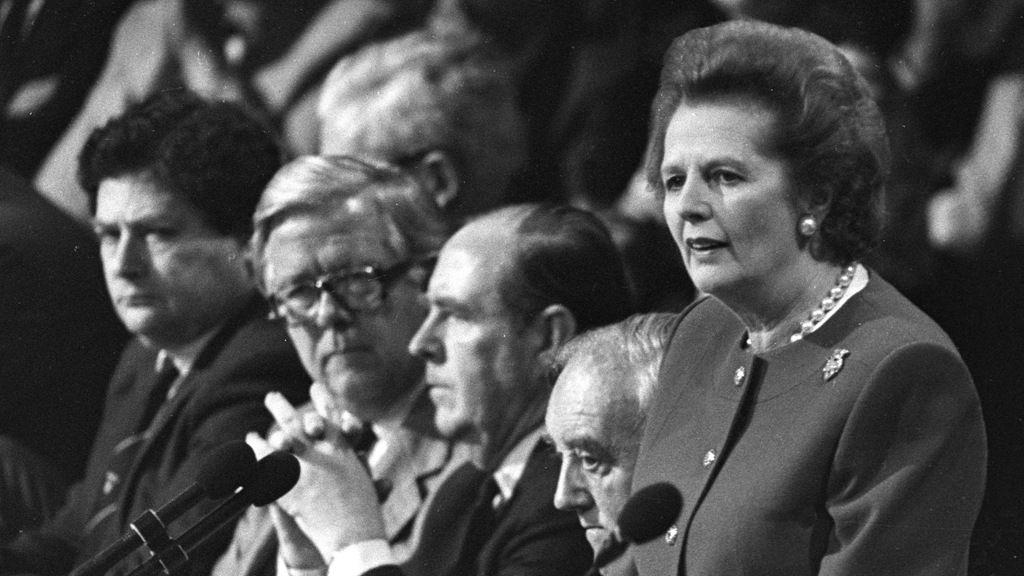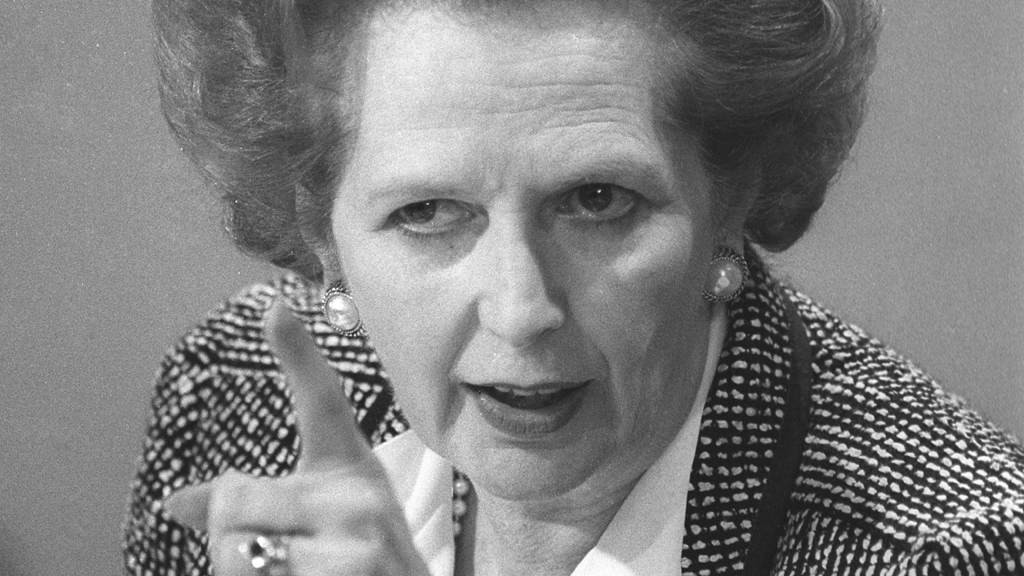Thatcher’s children: growing up in 1980s Britain
For entrepreneur Rachel Elnaugh, Margaret Thatcher’s premiership helped make Britain great again. But for writer Naseem Khan, life under the Iron Lady inspired antipathy and a sense of injustice.

My admiration for Margaret Thatcher must be put in the context of Britain in the 1970s before she came to power, writes Rachel Elnaugh. As a young teenager I remember huddling around a small battery-operated black and white TV by candlelight through yet another electricity strike, watching news reports of rats collecting around piles of uncollected rubbish in the streets.
Everyone lived at the mercy of the trade unions, employers could not remove lazy workers, and British manufactured goods, famous for their poor quality, were a worldwide joke.
It would take a strong and fearless leader to take Britain out of the mess it was in – and that was what we got in Margaret Thatcher.
Infinite possibility
When I left school I got a job as a lowly office junior in a local firm of accountants, but through diligent hard work and always doing more than I was asked to, I worked my way up the career ladder, eventually landing a job in the City of London and ending up by the mid 1980s working at the number one accountancy firm in the world.
We worked hard, we played hard, we made lots of money.
The Thatcher era created a new breed of energised, ambitious wealth creators willing to take their destiny in their own hands.
There was no room for slackers, moaners or shirkers in this world. It was dog eat dog. If you didn’t perform you were out. But there was a real sense of infinite possibility for anyone willing to work hard enough for it. Success was down to you and you alone.
The Thatcher era created a new breed of energised, ambitious wealth creators willing to take their destiny in their own hands. She made Britain great again.
No future in coal
There is still much anger from mining communities – even now, some 30 years on – for the devastation Thatcher allegedly wrought on them. But put into today’s context, do we have any sympathy for the photocopier, fax and CD manufacturers swept away by the digital revolution? Or by retailers whose goods no longer hold consumer appeal and which go into liquidation?
The truth is, the coal industry simply could not compete on a global scale, and Thatcher saw that there was no future in that sector.
Thatcher was the perfect leader for her time to take Britain out of the economic doldrums.
But as in mythology where the serpent eats its own tail, we eventually saw the dark side of capitalism, where money, greed and power became more important than anything else. The eventual collapse of the banking system was the inevitable result of an economy reliant on money which did not actually exist.
Once again the world has moved on, and it is now time for a new era of a more sustainable, harmonious way of doing business, where the masculine values of winning at all costs are balanced by the feminine values of nurturing and caring for others.
But Thatcher was the perfect leader for her time to take Britain out of the economic doldrums and show people that they were the masters of their own prosperity.
Entrepreneur Rachel Elnaugh created the market-leading experiences brand Red Letter Days. She starred in the first two series of BBC TV’s Dragons’ Den, and is now a speaker and business mentor

For an eight-year-old girl, Margaret Thatcher‘s election victory was a significant and enduring moment – not because she was the first female British prime minister, but rather because of the outrage and palpable anxiety it precipitated in my home in a Yorkshire village in the north of England, writes Naseem Khan.
“Thatcher the milk snatcher” had the reins – and there was a sad anticipation that things were not going to get better.
As Britain careered into the 1980s and the highest unemployment figures in decades, ranting at the evening BBC news bulletins as spending cuts and the latest employment figures were relayed became a fixture of the family routine at bathtime.
They were Thatcher’s children. “You’re for the Falklands!” they would holler, striking fear in the hearts of unemployed young men.
Congregations of young teenage girls with legs too large for skirts so short, in weather not warm enough, established themselves at local bus stops and became a permanent feature of the recession. Seemingly indifferent to any physical hardship endured by the lack of adequate attire for the northern climate, they would unnerve passers-by with their uncanny talent for finding a perceived vulnerability and frailty in people and making it a subject of public ridicule.
I gave them a wide berth. They were Thatcher’s children and so was I. “You’re for the Falklands! You’re for the Falklands!” they would holler, striking fear in the hearts of unemployed young men as Britain railroaded into an avoidable war in the Falklands.
Thatcher’s battleground
My home in West Yorkshire was close to a number of traditional mining communities. The National Union of Miners (NUM) was the strongest union in the country, and Margaret Thatcher was committed to weakening the power of the unions. These mining communities provided the battleground for Mrs Thatcher’s war.
Pit closures were announced and strikes began. The indelible image was of armies of shielded police on horseback, wielding batons and charging picket lines. Local police were not used for fear they might sympathise with the miners.
The indelible image was of armies of shielded police on horseback, wielding batons and charging picket lines.
In an unprecedented move, all dependents of miners were prohibited from claiming emergency welfare. We made food parcels, donated clothes, and wore “Coal not dole” badges. The sense of betrayal when a man broke his strike was tangible. Children would yell “Your dad’s a scab!” in the playground.
The experience was formative. Fear, antipathy and a sense of injustice gave birth to my political consciousness. For a young, idealistic teenager, not that far from myths and stories endlessly told in younger days in which truth and justice always won out, it marked the loss of innocence.
Naseem Khan is a writer and journalist